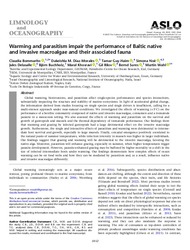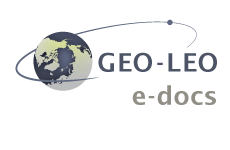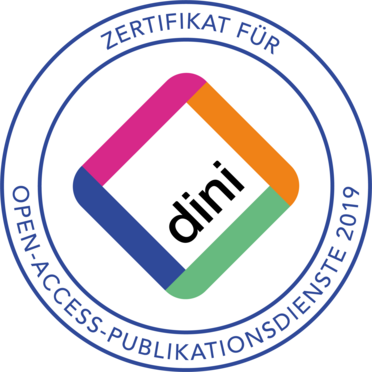Warming and parasitism impair the performance of Baltic native and invasive macroalgae and their associated fauna
Persistent URL: http://resolver.sub.uni-goettingen.de/purl?gldocs-11858/11271
 |
Dokument öffnen: |
Global warming, bioinvasions, and parasitism affect single‐species performances and species interactions, substantially impacting the structure and stability of marine ecosystems. In light of accelerated global change, the information derived from studies focusing on single species and single drivers is insufficient, calling for a multi‐stressor approach under near‐natural conditions. We investigated the effects of warming (+3°C) on the performance of a benthic community composed of native and invasive macroalgae, consumers and a trematode parasite in a mesocosm setting. We also assessed the effects of warming and parasitism on the survival and growth of gastropods and mussels and the thermal dependency of trematode performance. Our findings show that warming and grazing by infected gastropods had a large detrimental effect on the invasive macroalga growth. Furthermore, the single and interactive effects of parasitism and warming were detrimental to intermediate host survival and growth, especially to large mussels. Finally, cercarial emergence positively correlated to the natural peaks of summer temperatures, while infection intensity in mussels was higher in larger individuals. Our findings suggest that grazing and warming will be detrimental to the invasive macroalga, favoring the native alga. Moreover, parasitism will enhance grazing, especially in summer, when higher temperatures trigger parasite development. However, parasite‐enhanced grazing may be buffered by higher mortality or a shift in the size of infected intermediate hosts under warming. Our findings demonstrate how complex effects of ocean warming can be on food webs and how they can be mediated by parasitism and, as a result, influence native and invasive macroalgae differently.
Statistik:
ZugriffsstatistikSammlung:
Schlagworte:
Baltic communityclimate change
bioinvasions
parasitism
interactive effects
macroalgae growth

